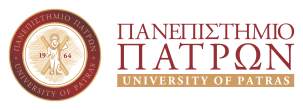ΓΕΝΙΚΑ
Extreme natural disasters as well as catastrophic technological failures may cause damages to the natural and the built environment and even loss of human life. The level of their potential impact, in terms of damages and losses, is usually magnified by the lack or poor disaster management planning against such hazards.
The hazards to the natural and built environment are associated with earthquakes, land and coastal floods, tsunamis, soil and coastal erosion, landslides, pollution of air, water and soil, forest fires, etc. In Greece, during the last few years, additional hazards, beyond the usual ones (earthquakes and forest fires), appear at an alarming rate; being either natural ones related to climate change (floods, for example) or technological related to operational failures (oil spills, for example).
The importance of research activities for hazard prediction-protection-mitigation is internationally recognized on one hand by the Office for Disaster Risk Reduction (www.unisdr.org) of the United Nations (UNDRR) and on the other hand by several national Research Institutes and Centers (for example, the “Centre of Natural Hazards and Disaster Science”, www.cnds.se, in Sweden, and the “International Research Institute of Disaster Science”, irides.tohoku.ac.jp, in Japan) whose aim is similar to the one of the “Research Institute of Advanced Technologies for Prevention and Mitigation of Hazards” at the Research Center of the University of Patras.
-
Research in the development and design of technological systems and works for the prediction-protection-mitigation of hazards with emphasis on the effect of climate change and the effectiveness and resilience of systems and works
-
Expert technical/research support service to public and private institutions for the mitigation of natural or man-made hazards.
-
Communication to the public of the natural and technological processes related to hazards and the improvement of the society capability for hazard management.
-
The objectives of the Research Institute are interdisciplinary and include a wide and multidisciplinary range of applications which cover all phases of hazard management:
Prevention,
Protection-Mitigation,
Preparedness,
Monitoring-Warning.
-
Dimas AthanassiosProfessor, Department of Civil Engineering, University of Patras
Email : adimas@upatras.gr
Telephone : +30 2610 99 6518
Website: www.civil.upatras.gr/el/Proswpiko/faculty/entry/DimasAthanasios
-
Denazis SpyrosProfessor, Department of Electrical and Computer Engineering, University of Patras
Email : sdena@upatras.gr
Telephone : +30 2610 96 2478
Website :www.ece.upatras.gr/index.php/el/faculty/denazis.html
-
Koutsias NikolaosAssociate Professor, Department of Environmental Engineering, University of Patras
Email : nkoutsia@upatras.gr
Telephone: +30 26 410 7 4201
Website : www.env.upatras.gr/people/profiles/id/50


